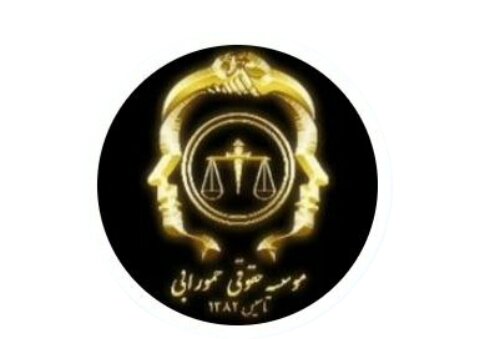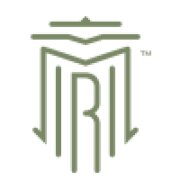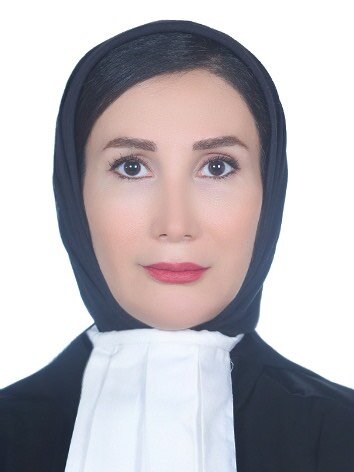Best Conveyancing Lawyers in Tehran
Share your needs with us, get contacted by law firms.
Free. Takes 2 min.
Free Guide to Hiring a Real Estate Lawyer
List of the best lawyers in Tehran, Iran
About Conveyancing Law in Tehran, Iran
Conveyancing in Tehran, Iran, refers to the legal process of transferring ownership of real property from one person or entity to another. This process includes drafting, verifying, and registering documents to ensure the transfer is valid under Iranian law. In Tehran, real estate transactions are subject to specific rules and regulations overseen by governmental authorities, which means both buyers and sellers must adhere to established legal procedures. Conveyancing also involves the settlement of any existing mortgage or debts on the property, payment of taxes and fees, and ensuring the property title is clear and marketable.
Why You May Need a Lawyer
Several situations often require the support of a conveyancing lawyer in Tehran. The most common scenarios include purchasing or selling residential or commercial property, inheriting property, resolving disputes over land ownership, clarifying unclear titles, or managing property gifts and transfers within families. Navigating the complex legal requirements, especially if you are unfamiliar with Iranian law or the Farsi language, can be challenging without legal assistance. A qualified lawyer ensures compliance with all regulations, provides protection against potential fraud, handles negotiations, and secures your legal interests during the transaction or dispute resolution process.
Local Laws Overview
Conveyancing in Tehran is governed by a blend of the Civil Code of Iran, property-related ordinances, and regulations from governmental bodies such as the Deeds and Real Estate Registration Organization. Key aspects include:
- All conveyancing transactions must be executed in writing and finalized before a registered Notary Public Office.
- The seller must demonstrate clear legal ownership through an official deed, known as a "Sanad-e-Malekiat" (Title Deed).
- Property transactions are subject to certain taxes and governmental fees, such as transfer taxes and municipal charges.
- Inheritance, donation, or transfer to relatives may require additional documentation or court authentication.
- Mortgages and liens on property must be registered and discharged as part of conveyancing, if applicable.
- The law strictly prohibits the transfer of certain types of land, including properties with unresolved zoning or construction violations.
- Foreigners have additional restrictions and must obtain special permissions from authorities for property transactions in Tehran.
Frequently Asked Questions
What is the typical procedure for transferring property in Tehran?
The process involves negotiating terms, drafting a preliminary agreement, arranging payment plans, performing due diligence, verifying the title, settling outstanding debts or taxes, and signing the official deed at a Notary Public Office. The transaction is completed after registration at the Deeds and Real Estate Registration Organization.
Who is responsible for paying taxes and fees during a property transaction in Tehran?
Both buyers and sellers have tax obligations, including transfer taxes, municipal charges, and service fees for notary and registry services. Typically, the seller covers capital gains taxes, while the buyer pays registration fees, but this may vary based on agreement.
Can foreigners purchase real estate in Tehran?
Yes, but foreigners must receive approval from relevant authorities. Certain areas may be restricted or require national security clearance. Legal guidance is highly recommended for non-Iranian buyers.
How do I verify the authenticity of a property title?
The title (Sanad-e-Malekiat) should be verified through the local notary and the Deeds and Real Estate Registration Organization. Legal counsel can conduct background checks to confirm the title's legitimacy and check for encumbrances.
What happens if there are debts or mortgages on the property?
All outstanding debts, loans, or mortgages must be discharged before or during the conveyancing process. Failure to clear financial encumbrances can prevent the legal transfer of ownership.
Do I need to be present in Iran to complete a property transfer?
While presence is preferred, you can appoint a trusted representative or lawyer through a legally recognized power of attorney to handle conveyancing on your behalf.
What documents are required for conveyancing in Tehran?
Key documents include the original title deed, identification cards for both parties, tax clearance certificates, payment receipts, and power of attorney if applicable. Additional documents may be necessary for inheritance or special cases.
Are property transactions registered with any government body?
Yes, all real estate transfers must be registered at the Deeds and Real Estate Registration Organization through officially recognized notary offices to be legally binding and enforceable.
Can disagreements during conveyancing lead to legal disputes?
Yes, disputes can arise over boundaries, property rights, or contract terms. In such cases, litigation or alternative dispute resolution may be necessary, with legal representation crucial to protecting your interests.
Is verbal agreement sufficient for property transfer in Tehran?
No, Iranian law requires all conveyancing transactions to be in writing and registered before an official notary public. Verbal agreements are neither recognized nor enforceable for real property.
Additional Resources
For those seeking guidance or official information, the following resources can be helpful:
- Deeds and Real Estate Registration Organization of Iran - Oversees official registration of property transactions and title deeds.
- Iranian Notary Public Offices - Facilitate and authenticate the legal transfer of property.
- Tehran Municipality (Shahrdari Tehran) - Provides information on building regulations, municipal taxes, and zoning compliance.
- The Iranian Bar Association - Offers directories of certified lawyers specializing in property law and conveyancing.
- Real Estate Agents and Consultant Associations - Some local organizations or real estate trade bodies may offer advisory services and dispute resolution support.
Next Steps
If you need legal assistance with conveyancing in Tehran, start by collecting any relevant documents related to your property or intended transaction. Research and contact qualified conveyancing lawyers or firms with experience in Iranian real estate law. Arrange an initial consultation to discuss your situation and receive tailored legal advice. Choose representation that can guide you through negotiations, documentation, official notary appointments, and registration. Stay informed about the legal process, ask questions about any unclear procedures, and ensure all agreements are officially documented and registered. Legal support is essential not only to safeguard your rights but also to avoid costly mistakes and disputes in Iranian property transactions.
Lawzana helps you find the best lawyers and law firms in Tehran through a curated and pre-screened list of qualified legal professionals. Our platform offers rankings and detailed profiles of attorneys and law firms, allowing you to compare based on practice areas, including Conveyancing, experience, and client feedback.
Each profile includes a description of the firm's areas of practice, client reviews, team members and partners, year of establishment, spoken languages, office locations, contact information, social media presence, and any published articles or resources. Most firms on our platform speak English and are experienced in both local and international legal matters.
Get a quote from top-rated law firms in Tehran, Iran — quickly, securely, and without unnecessary hassle.
Disclaimer:
The information provided on this page is for general informational purposes only and does not constitute legal advice. While we strive to ensure the accuracy and relevance of the content, legal information may change over time, and interpretations of the law can vary. You should always consult with a qualified legal professional for advice specific to your situation.
We disclaim all liability for actions taken or not taken based on the content of this page. If you believe any information is incorrect or outdated, please contact us, and we will review and update it where appropriate.

















